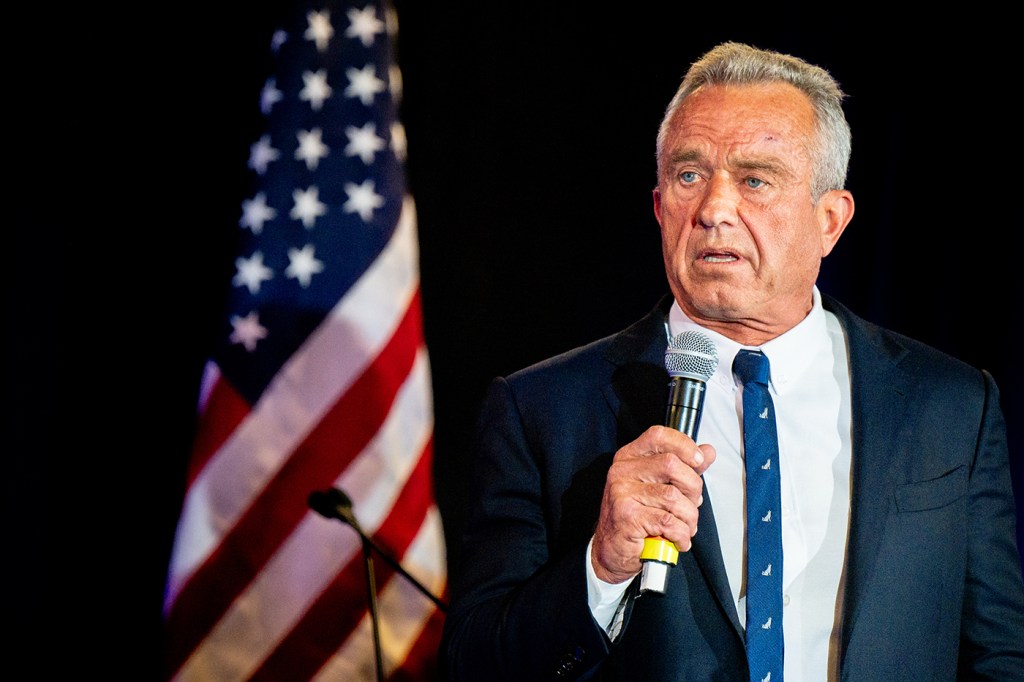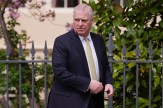RFK Jr. drops out, endorses Donald Trump. Former president may get small bump, expert says
Nick Beauchamp, associate professor of political science at Northeastern University, says Kennedy’s endorsement isn’t likely to make a huge difference.

Independent presidential candidate Robert F. Kennedy Jr. announced that he’s ending his campaign and endorsing Donald Trump.
Speaking to a crowd of reporters on Friday, the former Democratic turned independent longshot said he is withdrawing his name from the ballot in battleground states, and plans to suspend his campaign activities.
In an apparent effort to help Trump and siphon votes away from Vice President Kamala Harris, Kennedy is choosing to remain on the ballot in Democratic-leaning states.
Nick Beauchamp, associate professor of political science at Northeastern University, says Kennedy’s endorsement would give the former president a small bump, but one that isn’t likely to make a huge difference — even in such a closely contested race.
Featured Posts
“While [Kennedy] might arguably have drawn more of his voters from the Democratic side than the Republican side early in his campaign, even before Biden dropped out, [Kennedy] was drawing slightly more from Trump than the Democrats,” Beauchamp says.
According to models from the polling aggregator and website 538, Kennedy’s endorsement could result in a 0.2% gain for Trump, as Kennedy had been drawing roughly 1.3 points from Harris and 1.5 from Trump.
“As [Kennedy’s] vote share has shrunk over the last few months, more of that shrinkage seems to have come from dissatisfied Democrat-leaning independents ‘coming home’ than Republican-leaning independents,” Beauchamp says.
Still, he says it’s hard to get a clear grasp of the kind of support Kennedy attracted during his 16-month campaign — and it will be similarly difficult to predict whether his supporters will follow his lead.
“These voters also tend to be relatively low-information, which means their preferences are a bit less ideologically structured and, therefore, their second-place preferences are a bit more random,” Beauchamp says.
The announcement comes at the conclusion of the DNC in Chicago.
The race between Harris and Trump remains a statistical dead heat, according to recent polling. But Harris’ support is up roughly 6 percentage points compared to where Biden sat in July, according to Pew Research Center.
After Kennedy filed paperwork on Thursday to withdraw from the race in Arizona, speculation began to circulate about the possibility that he would drop out and endorse Trump.
In a long-winded, wide-ranging speech, Kennedy blamed “relentless, systematic censorship and media control” for styming his campaign.
“In my heart, I no longer believe I have a realistic path to an electoral victory,” Kennedy said to reporters.










